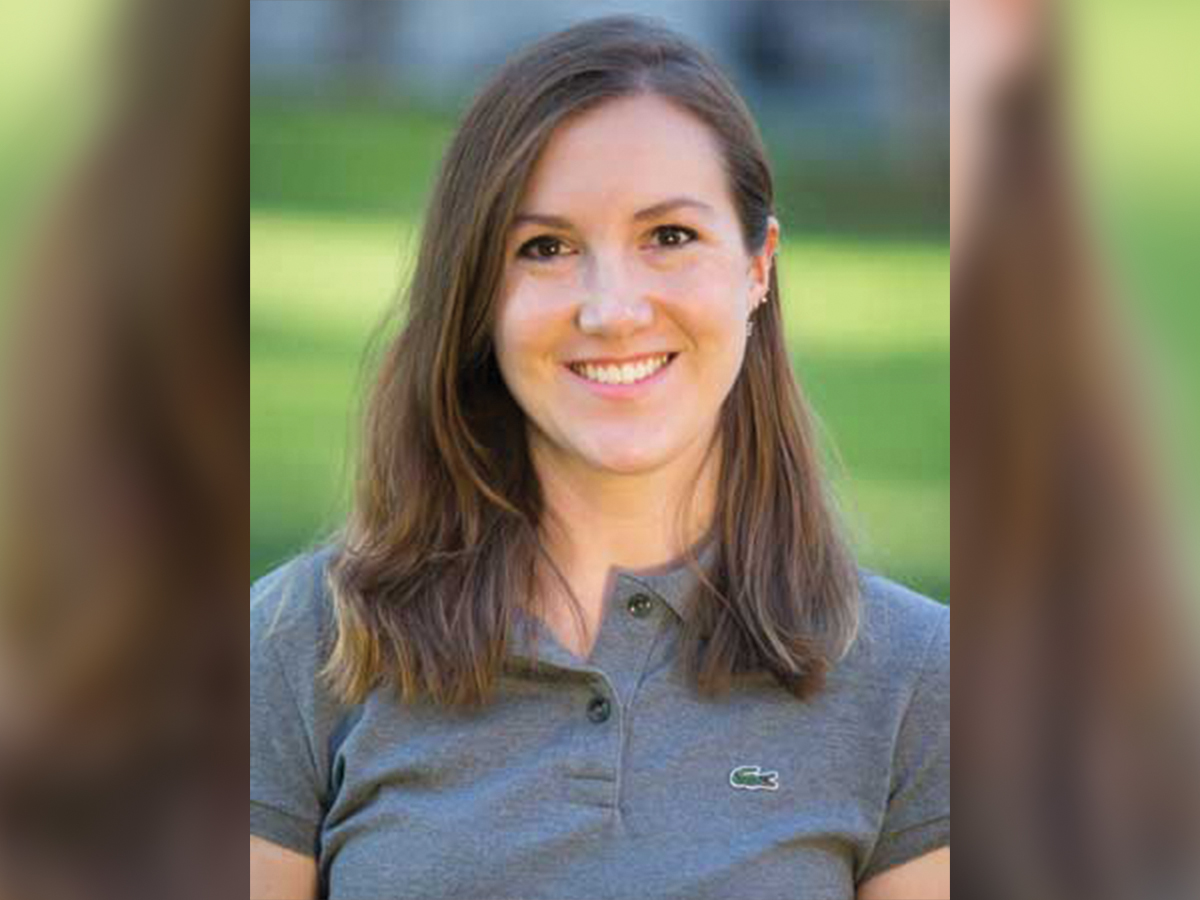
Sandra Kirtland Turner, an assistant professor of earth sciences at UCR, has been awarded a Sloan Research Fellowship for her work to reconstruct past climate changes along with their causes and consequences.
The Alfred P. Sloan Foundation provides grants primarily to support original research and education related to science, technology, engineering, mathematics and economics. Their mission reads, “These fields — and the scholars and practitioners who work in them — are chief drivers of the nation’s health and prosperity.”
Turner’s discipline focuses on paleoceanography and paleoclimatology. She reconstructs and models episodes of climate change in Earth’s history in order to understand how Earth’s carbon cycle and climate are connected. In order to reconstruct past climate and oceanography, Turner works with deep sea sediment cores, usually those obtained through the International Ocean Discovery Program (IODP), an international ocean marine research collaboration, previously known as the Integrated Ocean Drilling Program. In an interview with The Highlander, Turner stated, “Deep sea sediments are largely made of the remains of microscopic organisms, and the shells of these organisms contain a wealth of information about the environments in which they grew.”
In her lab at UCR’s Department of Earth Sciences in the Geology building, Turner is able to measure the ratio of isotopes of carbon and oxygen contained within the shells of these organisms and she can use these measurements to determine factors such as the past water temperature and how carbon was cycling through the oceans and atmosphere. Turner wrote, “To model past climate change, I work with a class of global climate models called Earth system models of intermediate complexity.” These allow Turner to test controls on climate over long intervals of time (thousands to millions of years). She can examine the interplay between the cycling of carbon between the ocean and atmosphere and consequences for the physical climate system.
Turner got into this field because she was concerned about climate change but equally fascinated by how Earth’s climate operates. As an undergraduate, Turner studied science, technology and international affairs in the School of Foreign Service at Georgetown University. Turner wrote, “I cared about environmental issues like climate change, but I quickly realized that I really wanted to deeply understand the science.” This led Turner to pursue graduate study in climate science at Scripps Institution of Oceanography, which is where she developed an interest in using Earth’s geologic record to understand how Earth’s climate operates.
Turner’s research program is an interplay of generating new data and working with these intermediate complexity climate models. She tries to balance these two directions of her research and feels as if they both coexist really well, writing, “As I generate new data, I end up considering new explanations for those datasets that I can test with models. As I work with models, I realize what data would be ideal to test the model results.”
Turner’s goal of her research is to more fully integrate her efforts at paleo-reconstruction and modeling, with a particular focus on understanding causes of climate variability during warm intervals of Earth history, which occurs when the amount of ice on land was significantly lower than today, or even when the Earth was totally ice-free.
According to Turner, she believes that her research can help tie together paleoceanographers and paleoclimatologists who focus on data generation with climate and carbon cycle modelers in new ways. She is participating in an upcoming IODP expedition to the South Pacific ocean this fall 2018, and believes this expedition will exemplify how scientists work while focusing on data generation. Turner wrote, “As a shipboard scientist who is also a modeler, I can help design data generation efforts in a way that will encourage well-integrated data and modeling studies.”
In terms of resources, Turner has a lab for preparing deep sea sediment samples and she co-runs a stable isotope geochemistry facility in the Department of Earth Sciences at UCR. Turner wrote, “I’m very lucky to have a close collaborator in my department, Andy Ridgwell, who is one of the creators of the Earth system model that I use in my research.”
Turner stated, “I was very honored to be awarded a Sloan fellowship. I was honored even to be nominated. It’s wonderful to have extra financial support for my research, but it’s also very flattering to have my research recognized in this way.”








